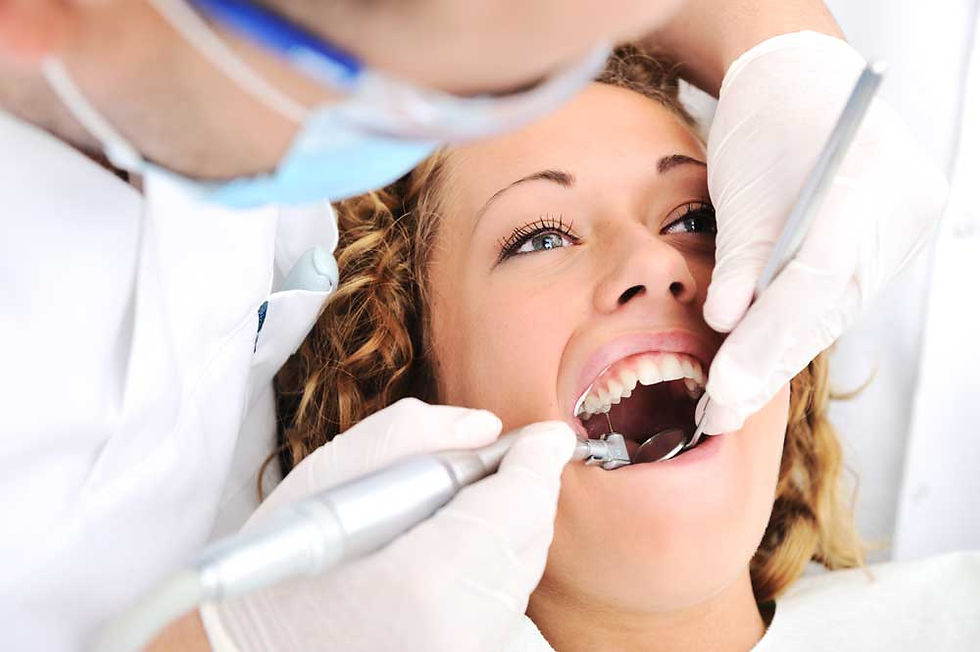Proper Guidance For Wisdom Teeth Extraction And Its Recovery
- Laticia Gibson
- Jul 28, 2023
- 2 min read

Wisdom teeth, often referred to as third molars, represent the very last set of teeth to emerge, generally in late adolescence or early adolescence. While some people have no difficulties with their wisdom teeth, others may have discomfort, crowding, or other dental complications. A dentist may propose wisdom teeth extractions in such instances. A dentist's advice is required both before and after the treatment to guarantee a smooth and effective recovery. This article will go over what to anticipate from a dentist during wisdom teeth extraction as well as the stages of a good recovery.
Preparing For The Procedure
If your dental professional suggests wisdom tooth extraction, they will give you specific advice regarding how you should get ready before the treatment. Fasting could possibly be required prior to the extraction procedure, particularly when you're going to receive a general anesthetic. Contact 24-hour emergency dental extraction for the best assistance.
The Wisdom Teeth Extraction Procedure
The dental professional will go into detail about the procedure and address any queries that you want to ask at the time of the extraction procedure. The procedure of extraction will be carried out either by a dental professional or a specialist in oral surgery. Dentists will anesthetize the region near the wisdom teeth using local anesthesia. If a great number of wisdom teeth have to be extracted or if any of the teeth have been impacted (partially or completely stuck beneath gum), you might be given general anesthesia.
The wisdom tooth will be extracted with the utmost care by a dental professional at the time of the procedure of extraction. If the tooth is impacted, a minor cut through the gum might be required to gain access to it. After the tooth is extracted, the dental professional will stitch up the wound with dissolvable sutures and provide you with post-operative directions.
Post-Operative Care
The time after wisdom teeth extraction is critical for healing as well as preventing problems. The dental professional will give you post-operative instructions tha entail the following:
Managing Pain And Swelling
It is normal to feel a little discomfort as well as swelling following the procedure of extraction. In order to minimize swelling, the dental professional might suggest taking prescription painkillers as well as applying cold compresses.
Eating Soft Foods
Confine yourself with softer meals that need not require extensive biting during the initial days after the procedure is completed. The following are some food options that you can go for:
Soup
Yogurt
Mashed potatoes
Smoothies
Avoiding Certain Activities
Your dental professional could recommend you steer clear of practices that have the potential to disturb the blood clot, which is necessary to ensure complete recovery. It could entail not using drinking from straws, refraining from smoking, and not participating in intense workouts.
Keeping The Mouth Clean
In order to avoid infection, your dental professional will give you advice regarding how to maintain the extraction area hygienic. It might include rinsing using lukewarm salty water after eating. To know more, visit dental extractions near me.
Conclusion
Wisdom tooth extraction may be required to avoid dental issues and enhance oral wellness. A dentist's supervision is required to assess the necessity for the extraction process, prepare for the treatment, and guarantee a smooth wisdom teeth extraction recovery. Implementing the dentist's pre-operative and post-operative recommendations is critical for recovering and avoiding problems.


Comments